The Kerala government is intensifying its push for sustainability through large-scale adoption of energy efficiency and decentralised renewable energy solutions. R. Hari Kumar, Director of the Energy Management Centre (EMC), Government of Kerala, in an exclusive conversation with Bhaswati Guha Majumder, Senior Corespondent at APAC Media, shares how the state is driving its energy transition agenda through behavioural change, sectoral action plans and innovative initiatives such as SEEAP, cool roof programs and battery storage systems.
Kerala was the first state in the country to establish a dedicated Energy Management Centre. How has EMC evolved over the years and what are some key milestones that reflect its impact?
Energy Management Centre – Kerala (EMC), established in 1996, is India’s first state-level institution dedicated exclusively to energy management. Over the years, EMC has evolved into a pioneering agency driving Kerala’s sustainable development and energy transition agenda. Its key milestones include:
- Angan Jyoti Program: Over 2,900 anganwadis converted to induction-based electric cooking, equipped with thermal cookers, solar PV, and cool roofs; saving 64,000 tonnes of CO₂ annually.
- Kulirima (Cool Roof Kerala): Piloted in 31 anganwadis, reducing indoor heat; a state-level policy is being drafted based on studies by ISI Delhi.
- STREE Project: Distributed 600 e-cargo cycles via Kudumbashree, cutting transport costs and boosting income for women entrepreneurs.
- Sustainable Building Code: India’s first state-notified code, now part of local building rules; EMC trains architects and officials for implementation.
- SEEAP: Kerala’s State Energy Efficiency Action Plan, developed with BEE and CII, outlines sector-wise decarbonisation strategies.
- Smart Electric Kitchen Program: Piloted in institutional kitchens, improves efficiency and indoor air quality.
- Battery Energy Storage Systems (BESS): Promoted for grid reliability and renewable integration.
- Pumped Hydro Policy: Pre-feasibility studies for five sites to tap Kerala’s hydropower for energy storage.
- LSGI Support: Helps implement LED street lighting and energy retrofits in local bodies.
- Mandatory Energy Audits: Kerala is the first state to require audits for all HT/EHT consumers.
- Agriculture Sector: Promotes efficient irrigation and vertical axis pump sets, reducing energy use by nearly 50 per cent.
- KSECF: A fund offering low-interest loans and connecting projects with investors.
- Energy Conservation Awards: Recognising best practices among industries and institutions.
With energy efficiency now tied closely to economic competitiveness, how is EMC enabling the state’s industries and urban bodies to adopt sustainable energy practices? Are there any flagship projects you would like to highlight?
Energy Management Centre – Kerala enables industries and local self-governments to adopt sustainable energy practices through:
- Detailed Energy Audits: Conducting comprehensive energy audits in industries, municipal utilities and MSMEs to identify feasible, low-investment, high-impact efficiency interventions for operational savings and productivity improvements.
- Municipal Demand Side Management (MuDSM): Providing technical support to Local Self Government Institutions to implement DSM projects covering street lighting, water pumping, and sewage treatment systems, reducing energy consumption and enhancing public service delivery.
- Standards & Labelling Enforcement: Enforcing BEE’s Standards & Labelling program to transform markets towards energy-efficient appliances, reducing household and commercial energy consumption effectively.
- Sustainable Building Code Implementation: Facilitating implementation of the Kerala State Energy Conservation Sustainable Building Code by building capacities among architects, engineers and officials, thus ensuring minimum efficiency standards in the construction sector.
- Promotion of Green Energy: While ANERT remains the nodal agency for renewable energy, EMC complements these efforts by promoting the adoption of solar, wind, small hydro, hydrogen, and pumped hydro storage, recognising that sustainable development cannot be attained without integrating renewable energy alongside efficiency measures.
- Consultancy for 100 per cent Green Energy Procurement: Supporting industries to transition to 100 per cent green energy procurement, advancing their decarbonisation goals and competitiveness in domestic and international markets.
- Smart Electric Kitchen Program: Transforming institutional kitchens to electric cooking systems, enhancing safety, efficiency, and environmental sustainability.
- Agriculture Sector Interventions: Promoting efficient pump sets, vertical axis pumps, and integrated awareness programs for farmers to reduce energy costs and improve agricultural productivity.
- Kulirima (Cool Roof Kerala): Piloting and scaling cool roof solutions to reduce cooling loads, improve indoor thermal comfort, and build climate resilience in urban areas.
What innovative strategies or campaigns have proven most effective in driving behavioural change at the community level in terms of conservation awareness?
EMC adopts a multi-layered, networked approach for public awareness creation and behavioural change. Despite having only one office in Thiruvananthapuram and limited manpower, EMC delivers extensive outreach through:
- Organisation-wide Awareness Campaigns: On average, EMC directly and indirectly organises over 1,000 programs annually across Kerala by networking with NGOs, BEE Certified Energy Managers and Auditors, professionals, experts, and resource persons, amplifying its impact.
- Angan Jyoti Program: Sensitising communities by transforming anganwadis into electric cooking and energy-efficient centres, demonstrating practical benefits of energy transition at the grassroots level.
- Urjayan Energy Clubs: Formed in schools to conduct awareness programs, quizzes, and competitions at school and state levels, culminating in the Kerala Student Energy Congress, building conservation habits and leadership skills among students.
- Unarvu Program: Through this initiative, students and teachers visit EMC facilities to gain exposure to energy-efficient appliances, electric vehicles, and hands-on training in conservation technologies, making sustainability an aspirational goal.
- Digital Campaigns: Disseminating practical conservation tips via social media, videos, and infographics to reach diverse segments effectively.
- Agriculture Sector Awareness: Conducting programs to promote energy-efficient irrigation, pumps, and post-harvest processing, integrating conservation with improved farmer livelihoods.
This robust networked model ensures that energy conservation is embedded within Kerala’s societal practices despite institutional resource constraints.
How is the Centre facilitating the integration of solar, wind and other renewables into Kerala’s energy mix, specifically in rural and underserved areas?
ANERT is the State Nodal Agency for the promotion and implementation of renewable energy (RE) projects in Kerala, facilitated by Kerala State Electricity Board (KSEB). Energy Management Centre – Kerala (EMC) takes the role of a propagator and enabler in the case of renewable energy projects. It is well understood that sustainability cannot be achieved without the incorporation of renewable energy sources, making their integration into Kerala’s energy mix indispensable for a resilient future.
Further, EMC is the nodal agency for the implementation of Small Hydro Power Projects and Pumped Hydro Power Projects in the State, recognising their significance in enhancing Kerala’s renewable energy portfolio and grid reliability. EMC facilitates the integration of green energy resources through:
- Policy Frameworks and Roadmaps: Developing technical roadmaps for integrating solar, wind, small hydro, hydrogen, and pumped hydro storage to ensure Kerala’s energy portfolio is diversified, resilient, and sustainable.
- Pumped Hydro Storage Projects: Conducting pre-feasibility studies for five pumped storage sites to harness hydropower potential for large-scale energy storage, crucial for balancing intermittent renewables and ensuring grid stability.
- Battery Energy Storage Systems (BESS): Promoting the deployment of BESS to store excess renewable power generated during off-peak periods, manage peak demand efficiently, and enhance renewable utilisation.
- Technical Support to LSGIs: Assisting Local Self Government Institutions in implementing solar street lighting projects in rural and peri-urban areas, thereby improving community safety, reducing operational costs, and strengthening infrastructure sustainability.
- Complementing ANERT Programs: While ANERT leads renewable energy promotion in the state, EMC ensures integration of renewable energy with energy efficiency interventions, as sustainable development cannot be attained without both efficiency improvements and renewable energy adoption working in synergy.
While one of EMC’s key roles is implementing and enforcing the Energy Conservation Act, 2001, in Kerala, what kind of support is extended to all the stakeholders, especially MSMEs, to meet energy efficiency norms?
EMC extends comprehensive support to MSMEs and other stakeholders through:
- Capacity Building Programs: Tailored training for plant managers, engineers, and technicians on energy-efficient technologies and best operational practices.
- Energy Audits: Detailed and walk-through audits to identify low-investment, high-impact interventions, improving competitiveness and operational efficiency.
- Financial Assistance through KSECF: Providing low-interest revolving loans to public and private institutions to implement energy-saving measures effectively.
- Investment Bazaars: Connecting industries and MSMEs with financial institutions and ESCOs for financing energy efficiency projects and technology adoption.
- Demonstration Projects: Showcasing efficient motors, pumps, boilers, and process upgrades to build confidence in energy-efficient technology adoption.
- Technical Assistance for Compliance: Supporting compliance with energy standards, sustainable building codes, and ISO 50001 certification processes.
- MSME Cluster Workshops: Organising exclusive cluster-based programs to build technical capacities and awareness of energy-saving opportunities in MSME sectors.
Data plays a critical role in energy planning. Explain EMC’s efforts in building a robust energy data bank and how it supports evidence-based policy formulation or project planning?
EMC adopts a data-centric approach for evidence-based policy and planning, undertaking:
- Kerala State Energy Conservation Awards Data Bank: Compiling sector-wise data from award applicants detailing their energy conservation measures and outcomes, creating a repository of best practices.
- Annual Consumption Pattern Analysis: Collecting and analysing electricity consumption data from Kerala State Electricity Board to identify changing trends, consumption profiles, and areas requiring focused interventions.
- Sectoral Studies: Conducting detailed studies to design policies and programs. For example, the Shakti Foundation–KPMG study on Energy Storage Systems (ESS) in Kerala revealed:
- EV charging, AC usage, and induction cooking will drive future demand, with EV charging and AC usage alone accounting for 60 per cent of the peak demand growth (1,850 MW) by FY27.
- Kerala’s peak demand is projected to increase from 5,300 MW in FY24 to over 7,000 MW by FY27, creating over 7 GWh potential for energy storage deployment.
- BESS emerged as the most viable option due to falling battery costs, locational flexibility, and short gestation periods, making solar-charged BESS cost-competitive compared to current procurement sources.
- State Energy Data Management System (SEDMS): Under development to integrate sectoral data for strategic planning and monitoring.
- SEEAP Preparation: Using granular data to formulate realistic targets and prioritised interventions to achieve Kerala’s sustainability and net-zero goals.
What are your strategic priorities for EMC in the next three to five years? And how do you envision the Centre’s role in shaping Kerala’s journey towards a low-carbon-sustainable future?
Over the next three to five years, EMC will prioritise:
- Implementing the State Energy Efficiency Action Plan (SEEAP) across all sectors to drive sectoral transformation towards sustainability.
- Scaling up Kulirima (Cool Roof Kerala) and integrating climate-resilient design measures into urban planning.
- Facilitating large-scale integration of BESS and pumped hydro storage to enhance grid stability and renewable utilisation.
- Promoting green public procurement policies for mainstream energy-efficient technologies in government purchasing.
- Strengthening data systems for real-time monitoring, evaluation, and evidence-based policymaking.
- Expanding capacity building initiatives for industries, professionals, LSGIs, and farmers to mainstream energy efficiency and sustainability.
- Providing consultancy for 100 per cent green energy procurement in industries to enable decarbonisation pathways.
- Enhancing agriculture sector interventions, promoting efficient irrigation, pump sets, and renewable-powered farming systems.
EMC envisions itself as an enabling institution that drives innovation, fosters partnerships, and empowers industries, communities, and local bodies to integrate energy efficiency and green energy solutions, thereby ensuring that Kerala’s journey towards a low-carbon, inclusive, and sustainable future remains a model for India and the world.

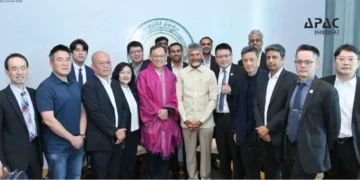


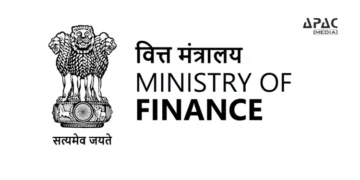






















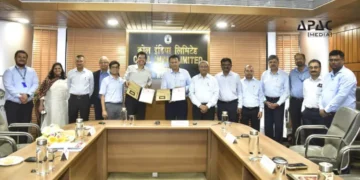
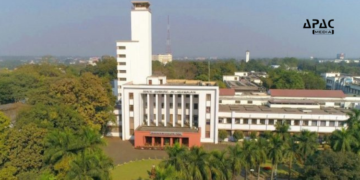


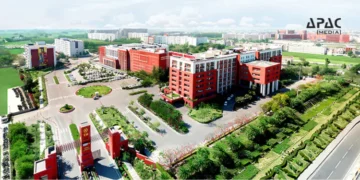
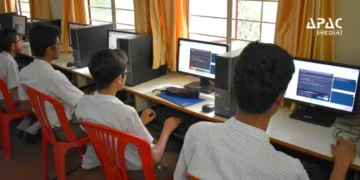












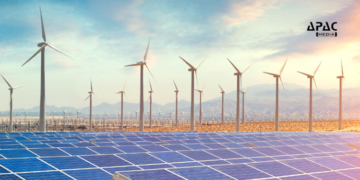








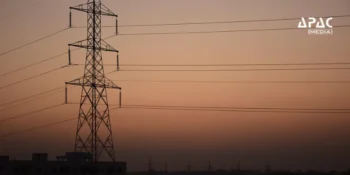










Discussion about this post